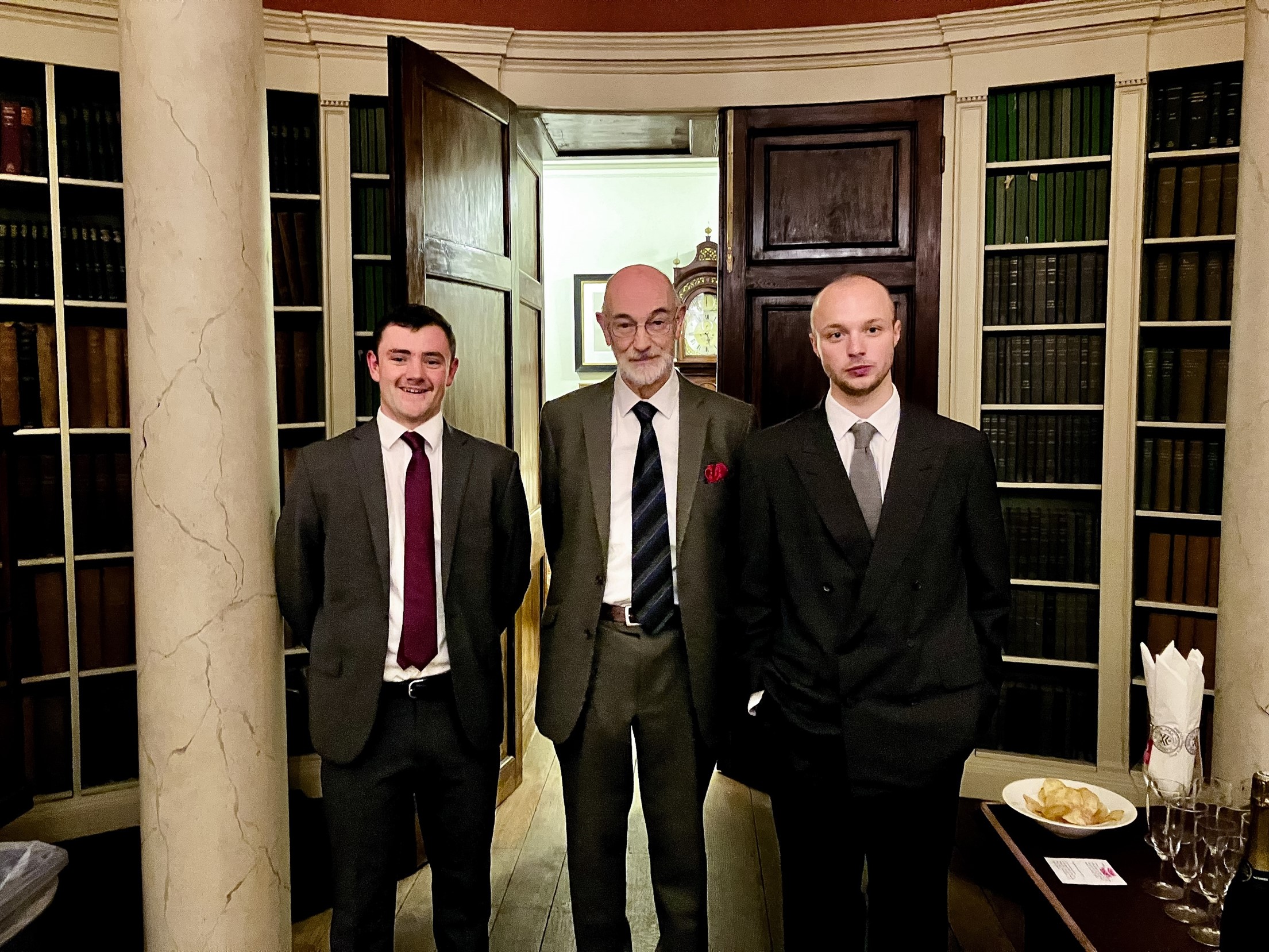Professor Bruce Campbell (QUB) gives the New College History Society Lecture
The New College History Society was very pleased to receive Professor Bruce Campbell (Emeritus Professor at The Queen's University Belfast) last Monday, who gave a lecture that proved incredibly interesting for pre- and mid-career historians alike. In particular, Professor Campbell's discussion of the interactions of climatology and paleoecology with 'traditional' histories shed a great deal of light on the increasingly interdisciplinary character of professional historical research, and the process of writing wide-reaching and ambitious global histories.
We wish Professor Campbell all the best for his continuing research, and we express our gratitude to the undergraduate, postgraduate and fellow historians who found time in their busy schedules to hear Professor Campbell speak.
Gilbert Ressel and Thomas Ricketts
Co-Presidents of the New College History Society
About the speaker
Bruce Campbell is Emeritus Professor of Medieval Economic History at The Queen’s University of Belfast, where he has taught since 1973. His research currently focuses upon the economic history of late-medieval Britain and Ireland, with particular reference to human-environment interactions during the fourteenth century and trends in agricultural output and productivity from the thirteenth to nineteenth centuries.
Among many of his well-received works, The Great Transition: Climate, Disease and Society in the Late-Medieval World (2016) has stimulated much new and unconventional thought about the effect of epi- and panzootics on medieval European transregional interactions. Drawing out, for example, the reactions of English medieval husbandmen to the 14th century rinderpest outbreak – many of whom violated the cordons sanitaires of the Channel and Irish Sea because they didn't want to slaughter their cattle – illustrates the international, even global, quality of medieval trade. Where historical tradition has emphasised the insularity and backwardness of societies during the so-called 'Dark Ages', works like Professor Campbell’s, which throw into sharp relief the rich tapestry of transregional connections, are very important.

Thomas Ricketts, Professor Campbell and Gilbert Ressel
